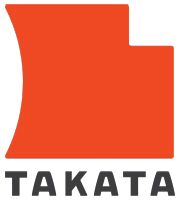 At least four auto makers have confirmed defective Takata air bags are installed in their new vehicles. Those bags will need to be replaced, according to a U.S. Senate panel that met this summer, as the government continues to tackle the largest automotive recall in U.S. history.
At least four auto makers have confirmed defective Takata air bags are installed in their new vehicles. Those bags will need to be replaced, according to a U.S. Senate panel that met this summer, as the government continues to tackle the largest automotive recall in U.S. history.Related: Air Bag Lawsuit Lawyer
Four automakers have confirmed the installation of rupture-prone Takata air bags that lack a drying agent: Toyota Motor Corp.; Fiat Chrysler Automobiles NV; Volkswagen AG; Mitsubishi Motors Corp. According to a summer 2016 report from U.S. Senate Commerce Committee Democrats, those air bags are linked to most of the deaths and injuries from ruptures. The defective bags are allowed to be sold, but all must be recalled by the close of 2018.
Ammonium Nitrate Propellant
Ammonium nitrate is used as a propellant in the Takata air bag inflaters. It can destabilize from prolonged moisture and heat exposure, leading to explosions that can send shrapnel into people in vehicle cabins. The inflaters weaken and worsen with age, becoming more prone to explosion. The exploding air bag problem is linked to at least 11 deaths and more than 100 injuries world-wide.
70 Million Air Bags Recalled
Nearly 70 million air bags have been recalled in the U.S. after a recent recall expansion included air bag devices without a drying agent to prevent moisture buildup. The National Highway Traffic Safety Administration (NHTSA) coordinating the recalls is prioritizing warmer states where air bags have higher explosion risks. Regulators now monitor Takata and may order more recalls. Officials have said some air bags will need to be replaced more than once, as newer devices, which still have problems, replace older, explosion-prone air bags.
The Wall Street Journal reported this summer that federal car-safety regulators fined a Chevrolet dealership in Arizona $40,000 after a two-year investigation found it selling unrepaired recalled vehicles. That violated U.S. law, according to NHTSA website documents.
Additional 40 Million Recalled
Takata is set to recall up to 40 million more air-bag inflaters. That adds to the 28.8 million air bags already recalled.
The recall and actions continue an unprecedented U.S. government crackdown on the auto industry for safety lapses that have triggered congressional hearings, investigations, and monetary fines. In November 2015, Takata agreed to fines for failing to alert regulators to defective air bags in a timely manner as required by law. Takata faces more fines, depending on the outcome of a U.S. Justice Department investigation.
Sen. Bill Nelson (D., Fla.) a persistent critic of Takata and car-safety regulators’ handling of widespread recalls, released his report in June 2016. It found that Toyota still expects to produce some 175,000 vehicles with the defective air bags, from March 2016 to July 2017.
Models with Defective Air Bags
At least one current Fiat Chrysler model contains a front passenger-side air bag with an inflater that lacks a drying agent, the report found. The Toyota and Fiat Chrysler models weren’t specified.
The report cited several car models with defective air bags that lack a drying agent:
- 2016 and 2017 Mitsubishi i-MiEV
- 2016 Volkswagen CC
- 2016 Audi TT
- 2017 Audi R8
Volkswagen’s luxury unit, Audi, said through a spokesman that Volkswagen launched a recall in February 2016 and is following NHTSA guidelines to replace certain Takata air bags.
Fiat Chrysler
A Fiat Chrysler spokesman said the company isn’t putting parts under recall into any new vehicles. A Toyota spokesman said Toyota is phasing out Takata air bag inflaters that lack a drying agent in vehicles being built now.
Mitsubishi
A Mitsubishi spokesman said the company is working with another supplier to develop replacements for the air bag inflaters in the two models lawmakers mentioned, with a recall expected in early 2017 once parts are ready.
2.1 Million Exploding Bag Vehicles?
The report found more than 2.1 million replacement air bag inflaters with ammonium nitrate sans a drying agent installed in U.S. vehicles as of March 2016. Democratic lawmakers suggested sales of vehicles with those air bags be halted until they are repaired.
The report also faulted lagging repairs to vehicles with defective air bags and urged Takata, regulators, and auto makers, to increase supply of devices that don’t use ammonium nitrate. More than 70% of replacement air bag inflaters now come from auto parts’ makers besides Takata, said a U.S. official.
Faster Repairs Needed
An NHTSA spokesman called the air bag recalls “urgent” and agreed repairs should be done faster. The spokesman said, “While the agency recognizes (constraints) due to the size and complexity of the recall, NHTSA has called on auto makers to do more to find and fix vehicles more quickly.”
Defective Takata Air Bags in New Vehicles
Honda Motor Co. , Takata’s largest customer, initially said 17,000 new vehicles were equipped with air bag inflaters lacking a drying agent, according to the report. But in more recent discussions with lawmakers, Honda said no new vehicles would be equipped with such inflaters. A Honda spokesman said no Honda or Acura vehicles for sale in the U.S. now are being built with Takata air bag inflaters that lack a drying agent.
Related
- Air Bag Lawsuit Lawyer
- GM Recall Lawsuit
- Takata settles Air Bag Lawsuit
- Takate Air Bag Blinds Man
- Houston Car accident Lawyer

by Matthews & Associates




